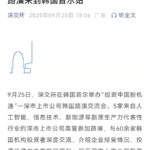The pilot reform for long-term investment of insurance funds has made new progress, accelerating the entry of insurance capital into the market.
Recently, it was learned that Taiping Asset Management, a subsidiary of China Taiping, has received approval from the National Financial Regulatory Administration to establish Taiping (Shenzhen) Private Securities Investment Fund Management Co., Ltd.
This “insurance-backed private fund” initiative aligns with the pilot reform for long-term investment of insurance funds, which involves insurers setting up private securities investment funds primarily targeting secondary market stocks for long-term holdings.
Currently, the pilot reform is accelerating, with three batches approved so far, totaling 222 billion yuan (including approved and pending approvals). Participation has expanded to major and mid-sized insurers, including China Life, New China Life, CPIC Life, Taikang Life, Sunshine Life, PICC Life, Taiping Life, Ping An Life, China Post Life, and related insurance asset management companies.
Data shows faster market entry by insurance funds. In Q1, life insurers’ stock holdings reached 2.65 trillion yuan, with long-term equity investments at 2.60 trillion yuan, together exceeding 16% of total assets—a significant increase from late 2024.
Pilot Scale Exceeds 200 Billion, More Insurers Join
Regarding the establishment of Taiping (Shenzhen) Private Securities Investment Fund Management Co., Ltd., Taiping Asset Management stated it aims to actively support the long-term investment pilot. By late 2024, Taiping Asset Management oversaw assets exceeding 1.5 trillion yuan.
Taiping Asset Management added, “Next, we will standardize fund operations, establish long-term evaluation mechanisms, and develop investment strategies tailored to insurance capital. This will enhance medium- to long-term investments in capital markets, support national strategies and the real economy, and reinforce insurance funds’ role as market stabilizers.”
The pilot reform has seen three batches so far. The first, approved in October 2023, involved China Life and New China Life jointly establishing a 50-billion-yuan Honghu Fund, fully invested by early March this year.
The second batch, launched in January 2025, allowed CPIC Life, Taikang Life, and Sunshine Life to participate via contractual funds, totaling 52 billion yuan. In March, the National Financial Regulatory Administration approved an additional 60 billion yuan, involving PICC Life, China Life, Taiping Life, New China Life, and Ping An Life, bringing the second batch to 112 billion yuan.
The third batch, launched in March 2025, included PICC Life, China Life, Taiping Life, New China Life, and Ping An Life, with a total of 60 billion yuan. Combined, the three batches amount to 222 billion yuan.
“Participating in long-term stock investment pilots through private funds helps insurers leverage their strengths as long-term investors and deepen capital market involvement, fostering positive interaction between insurance funds and markets,” noted CITIC Securities.
Diverse Fund Types, Focus on Blue-Chip Stocks
The three pilot batches feature diversified fund types and a ‘national policy + local practice’ approach, with insurers favoring investments like blue-chip stocks and high-dividend assets.
First, insurance-backed private securities funds are becoming more varied. For example, Honghu Zhiyuan Phase I was a “corporate fund,” while Phases II and III adopted “contractual funds.”
The second batch saw CPIC Life, Taikang Life, and Sunshine Life participate via contractual funds, which offer advantages like standardization, ease of setup, and transferable shares.
The pilot also reflects a ‘national policy + local practice’ trend. For instance, Shenzhen actively introduced insurance capital to establish a 10-billion-yuan fund—Shenzhen Municipal Ping Private Equity Investment Fund Partnership—with 90% allocated to local infrastructure and industrial projects.
Regarding investment targets, insurers prefer large-cap stocks with strong governance, stable operations, and consistent dividends. For example, Honghu Zhiyuan (Shanghai) Private Investment Fund heavily invested in A-shares like Inner Mongolia Yili Industrial Group, Shaanxi Coal Industry, and China Telecom, appearing among their top 10 shareholders as of August 11.
“Investments focus on large blue-chip stocks with sound governance, strong performance, and shareholder returns, spanning sectors like finance, energy, utilities, infrastructure, consumption, and emerging fields like new energy and advanced productivity,” explained a China Life Group asset management executive during the second batch





